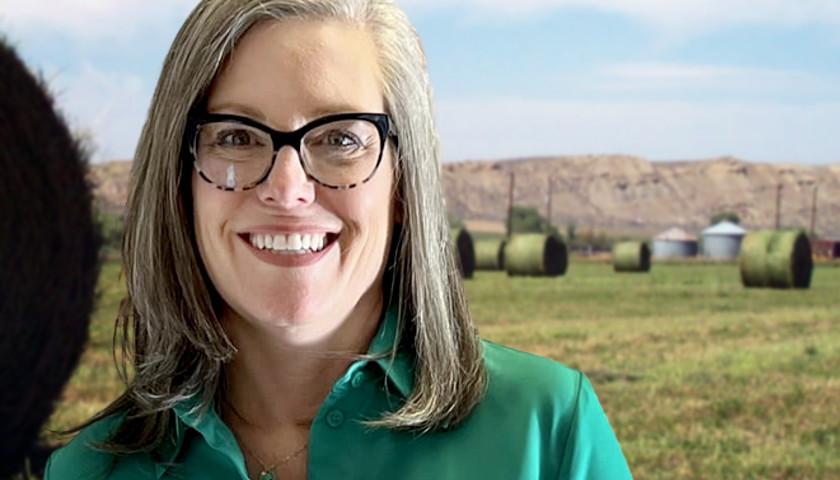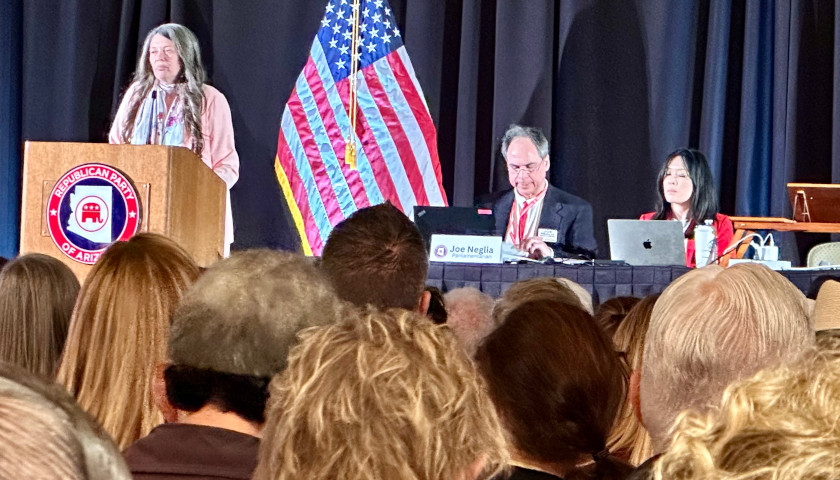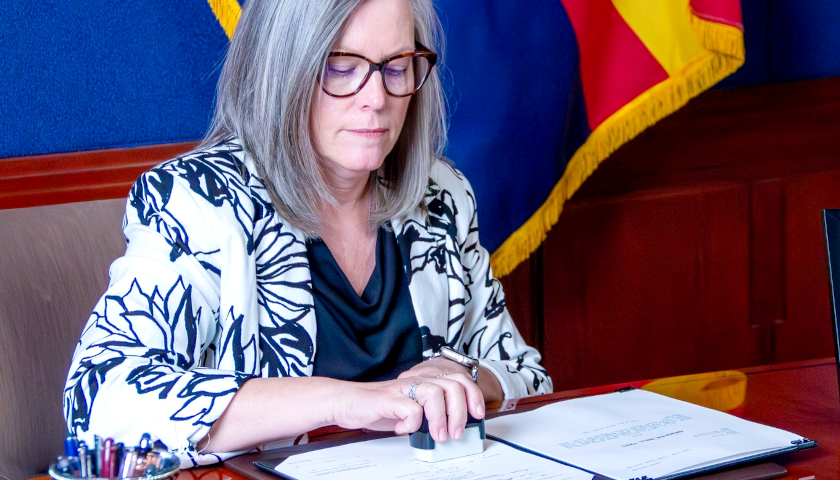Governor Katie Hobbs said canceling state leases to a Fondomonte, a foreign company that grows water-hungry alfalfa for export to Saudi Arabia to feed cattle, was complex, asserting that some have asked Arizona to “unilaterally yank one lease” while allowing other, similar leases to continue in a recent interview. The governor did not comment on her campaign’s connection to Fondomonte, but gave detailed reasons why terminating the lease would be a complicated issue.
Hobbs stressed that ending the lease to Fondomonte is complicated because, “It would be treating one leaseholder differently than others,” in an interview with The Arizona Republic. Hobbs continued, “We can’t just unilaterally yank one lease because we don’t like that alfalfa’s going to Saudi Arabia.”
Fondomonte is a company that grows alfalfa, a notoriously water-hungry crop, for export to Saudi Arabia, where the crop is prohibited from being grown in Saudi Arabia due to its enormous water consumption. The company grows alfalfa on leased lands in drought stricken Arizona, where the company pays as little as $25/acre, even as Arizona citizens face higher water rates.
The company recently hired Signal Peak Consulting, a firm run by Chaz Guzman. Guzman, in turn, is the business partner of Joe Wolf in the firm Fillmore Strategy. Wolf was a senior advisor to the Hobbs campaign until some time after the governor’s inauguration. Both businesses shared an address.
Guzman registered as a lobbyist representing Fondomonte with Hobbs’ office on July 26, but the relationship was terminated by July 28. Similarly, The Arizona Republic reported that Wolf was no longer being paid by the Hobbs campaign, though it’s unclear when, as Wolf continued to represent Hobbs to the media after her inauguration.
The Arizona Sun Times contacted Hobbs’ office to ask about lobbying efforts on behalf of Fondomonte during Guzman’s tenure, and to ask whether she is contemplating any actions to curtail leases to companies that export crops requiring large amounts of water to foreign countries, and did not receive a response prior to press time.
Hobbs also stressed to the The Republic that efforts to revoke Fondomonte’s lease would be further complicated by private property owners, who also lease land to the company for alfalfa production. The governor also seemed to warn that a ban on growing alfalfa in Arizona could threaten “food security” in the United States.
“If you look at curtailing farming in the Yuma region, that’s a huge food security issue for Arizonans and for a lot of Americans especially during the winter months,” said Hobbs. “We grow a lot of cattle here.”
Hobbs also noted that lack of regulation in rural areas means developers are not required to plan for a 100-year supply of water, but acknowledged that regulating rural counties would prove difficult, telling the outlet it’s unlikely “the limits that would work for, say, Mojave County, are the same limits that would work for Cochise.”
Some Arizona Republicans have seized on Fondomonte as a political wedge against Hobbs and Democrats, while residents have reportedly complained about the local water supply.
Le Paz County Board of Supervisor Holly Irwin reported that residents have now complained for years that water is becoming harder to pump in the area, while former gubernatorial candidate Kari Lake recently alleged Fondomonte and Hobbs engaged “in a corrupt bargain for our water.”
– – –
Tom Pappert is a reporter for The Arizona Sun Times and The Star News Network. Follow Tom on Twitter. Email tips to [email protected].
Photo “Gov. Katie Hobbs” by Gov. Katie Hobbs and “Alfalfa Field” is by Gary D Robson CC3.0.









It is indeed a complicated issue – for her. But I’m not surprised. Most politicians are for sale, and can be cheaply bought, especially by foreign entities.